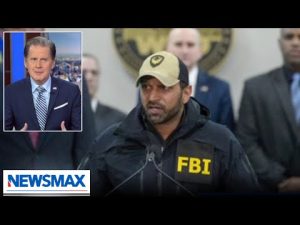In a world where peace talks are about as common as unicorn sightings, U.S. Special Envoy to the Middle East Steve Witkoff cuts an interesting figure, navigating the tumultuous waters between Ukraine and Russia. Apparently, he’s been embedded in talks alongside President Trump, attempting to negotiate a ceasefire amid a barrage of attacks that seem to be relentless. While many are skeptical, Witkoff is confident progress is being made, like calling a timeout in a schoolyard scuffle. In his view, Russia’s President Putin, often painted by critics as the bad guy of the international playground, is just misunderstood, and peace lies just one conversation away.
Steve Witkoff has unveiled a diplomatic strategy of peace through strength, holding marathon meetings with Putin lasting hours on end. These meetings have supposedly resulted in agreements on energy infrastructure protection and a proposed ceasefire in the Black Sea. It’s reminiscent of a drama where communication lines long silent have finally been restored and the lead character believes a peaceful resolution is just over the horizon. Witkoff suggests Putin isn’t quite the boogeyman the media portrays, emphasizing that any conflict requires understanding both sides—almost like dealing with an overzealous hall monitor whose actions might just need some context.
Meanwhile, critics like the National Review have a less rosy view, branding Putin as a tyrant with quite the rap sheet, including suppression of media and alleged invasions. Yet Witkoff, undeterred, claims Putin’s actions are driven by views on regional history and referendums rather than an itch to conquer Europe. In Witkoff’s narrative, Russia isn’t a lone wolf seeking to devour the continent—a sentiment that seems left out of current European geography lessons. Critics might call this viewpoint naive, but Witkoff paints it as a realistic assessment of a conflict that requires untangling truth from fantasy.
With sideshow-like tension also palpable in the Middle East, Witkoff’s diplomatic plate threatens to overflow. An attempted ceasefire with Hamas has crumbled, with the envoy expressing frustration and urging a return to negotiations. Hamas, seen as the aggressor, declined a ceasefire proposal that would have offered a glimmer of hope, and Witkoff’s patience for their antics appears stretched. However, the U.S. stands firmly with Israel, signaling unyielding support amid the ongoing chaos. Witkoff embodies the spirit of a seasoned negotiator trying to maintain decorum in a classroom where agreements often dissolve into chaos.
As if these weren’t enough, there’s Iran, whose nuclear ambitions are on Witkoff’s watchlist, given strict presidential orders that a nuclear weapon is a non-negotiable line that will not be crossed. Witkoff holds to the belief that diplomacy can still shine through, offering dialogue over more explosive alternatives. In an intriguing twist of calculated optimism, Witkoff hopes communication can triumph over conflict, and peace might yet emerge from the fog of discord, despite the skeptics sharpening their pens for his every move.







